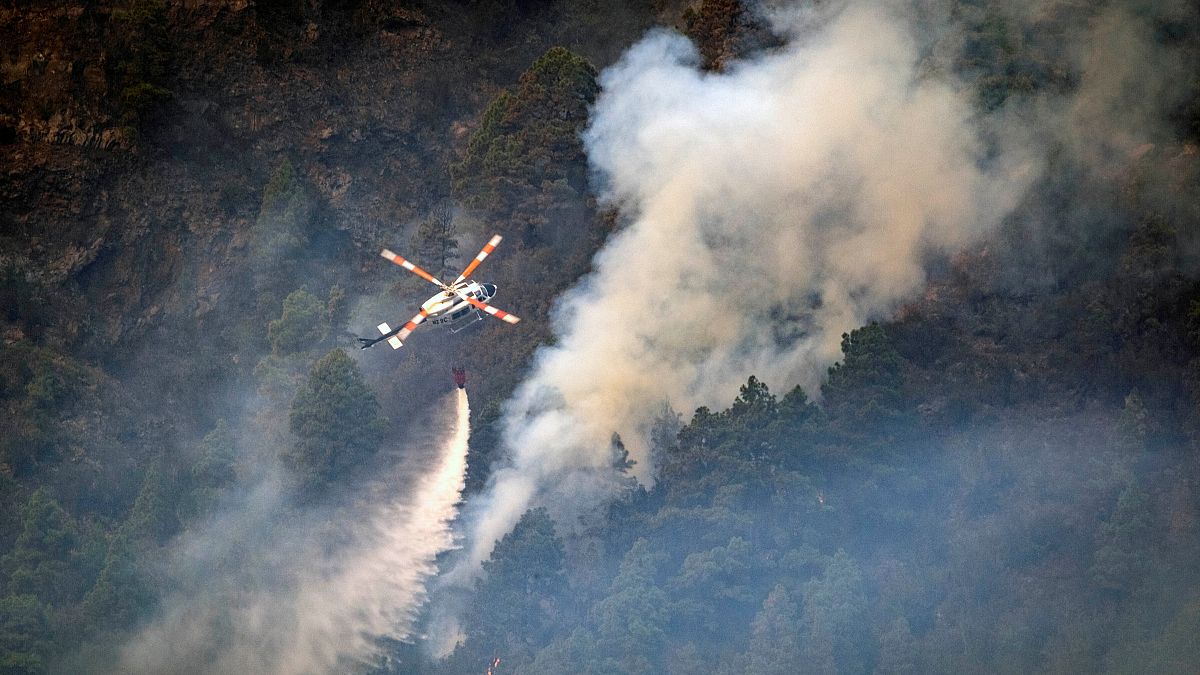Heatwave conditions have raised temperatures to dangerous levels in northern Africa and Europe.
Improved weather conditions helped firefighters make advances overnight in their battle to tame a wildfire raging out of control for the past five days on the tourist island of Tenerife in Spain's Canary Islands, authorities said Sunday.
"The night was very difficult but thanks to the work of the firefighters, the results have been very positive" Tenerife governor, Rosa Dávila said at a news conference early Sunday.
The Canary Islands emergency services said in a tweet on the social media platform X, formerly known as Twitter, that firefighters had been able to work in "better weather conditions than expected."
Dávila said that more than 12,000 people have been evacuated from their homes since the fire started Tuesday. Up to Saturday more than 8,000 hectares of pine forest had been burned, but Dávila said that figure was likely to be much higher Sunday.
No injuries have so far been reported and Davila said that thanks to the firefighters no houses have been burned so far.
The fire, described as the worst in Tenerife in decades, is threatening 11 town areas flanking the steep and craggy mountain area affected. Access for firefighters is extremely difficult.
The emergency services said air quality in 19 town areas was not good and urged people to stay indoors when possible and wear masks outdoors.
The blaze in the northeast of the island is not near the island's main tourist areas.
More than 400 firefighters and soldiers have been deployed, as well as 23 water-carrying helicopters and planes.
The Canary Islands have been in drought for most of the past few years, just like most of mainland Spain. The islands have recorded below-average rainfall in recent years because of changing weather patterns impacted by climate change.
Spain's mainland is bracing for another heat wave starting Sunday. Spain's state weather service issued a warning Saturday that temperatures would be on the rise in the coming days, hitting 40 degrees Celsius (104 Fahrenheit) in parts of the mainland.
The seven Canary Islands are located off the northwest coast of Africa and southwest of mainland Spain. At their nearest point, they are 100 kilometres from Morocco.
More than 2,000 people were evacuated in a wildfire on the nearby La Palma island last month that affected some 4,500 hectares.
According to the European Forest Fire Information System, Spain heads the list of EU countries affected by wildfires so far this year, with 75,000 hectares burned, ahead of Italy and Greece.
Spain accounted for almost 40% of the nearly 800,00 hectares burned in the European Union in 2022, the EU agency said.
